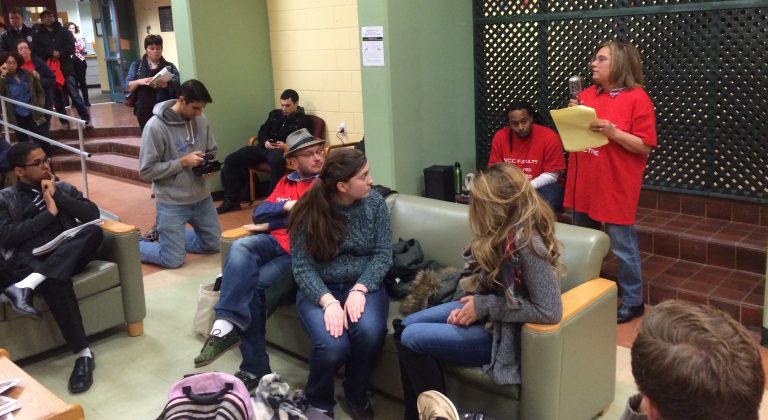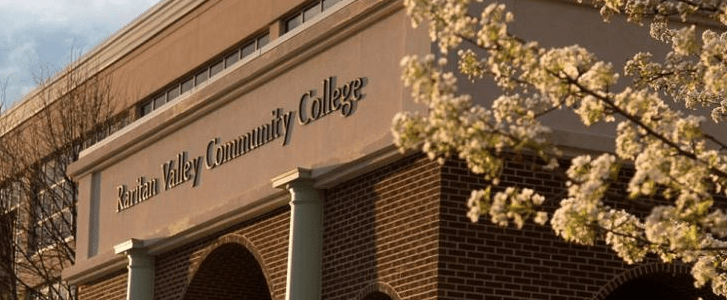By Dierdre Glenn Paul
(A response to “It’s Time To Grant State Colleges The Same Authority As Other Public Colleges & Universities”)
With the state of New Jersey in dire financial straits, New Jersey Association of State Colleges and Universities’ CEO Darryl Greer seeks to capitalize on an opportunity to decimate collective bargaining.
Greer suggests that New Jersey’s higher education fiscal woes are inextricably linked to labor costs. Grabbing a page from Gov. Christie’s playbook, Greer would rather make higher education unions the public piñata than truthfully identify the real culprits–competing presidents amassing alarming debt for massive expansion campaigns of new buildings and satellite campuses around the globe in the hope of replacing Rutgers as the premier state university.
The nine state colleges and universities represented by Mr. Greer are in poor fiscal health because they have failed to retain their distinctive missions of providing an affordably excellent education to first generation college students and working-class New Jersey citizens.
This association that should be working to find common ground with all stakeholders and planning a viable strategic plan for higher education has instead revealed for all to see that they have no plan. Like Wall Street, they have opted to rely on the government for a bailout that will forgive years of imprudent fiscal decisions made at New Jersey taxpayers’ expense.
Unlike Greer’s management association, the American Federation of Teachers Higher Education division is working in collaboration with the Association of American University Professors to develop initiatives that will benefit students, educators and New Jersey’s working families. These reforms are not dependent upon Gov. Christie’s odd brew of flawed logic and vindictiveness that resulted in the Race to the Top debacle and, most recently, pulling the plug on the federally funded ARC tunnel project.
Instead of ill-conceived toolkit measures, improving higher education in New Jersey should include:
*Enforcement of last year’s public law S-1609 that provides for the improved structure and fiscal management of higher education in New Jersey.
*Restoration of Student Financial Aid for post-secondary education in New Jersey (e.g. Tuition Assistance Grants and EOF funding).
*Reasonable and more uniform pay (statewide) for contingent faculty (e.g. adjuncts, part-time lecturers and graduate assistants) who, despite their professional status and the fact that they teach the majority of courses in many institutions, are most vulnerable to exploitation.
Our working group of educators is questioning the relevance of Greer’s proposals to address the rising tuition and fees that drive New Jersey students out-of-state or their families into debt.
With management advocacy groups like Mr. Greer’s insuring that they have no oversight, rogue presidents continue to waste New Jersey taxpayer money on efforts that will more likely boost their personal employment profiles than ensure that New Jersey college and university students receive an affordable world class education that will prepare them for quality employment within the state. One of the Garden State’s largest exports is college-age students who attend higher education institutions outside of New Jersey and choose against returning home upon graduation.
Keeping these students close means New Jersey will be retaining a skilled workforce of critical-thinkers who can offer more than a one-size-fits-all toolkit approach to rebuilding the economy and improving educational opportunity for the future.
Dierdre Glenn Paul is Executive Vice President, Higher Education Division, of AFT-NJ with more than 30,000 members. She is Executive Vice President of the Council of New Jersey State College Locals (representing faculty and staff at The College of New Jersey, Kean University, Montclair State University, New Jersey City University, Ramapo College of New Jersey, Richard Stockton College of New Jersey, Rowan University, Thomas Edison State College and William Paterson University). Dr. Paul is full professor at Montclair State University.
-from http://njtoday.net/2010/10/13/sound-higher-ed-policy-more-than-cheap-toolbox-gimmicks/



